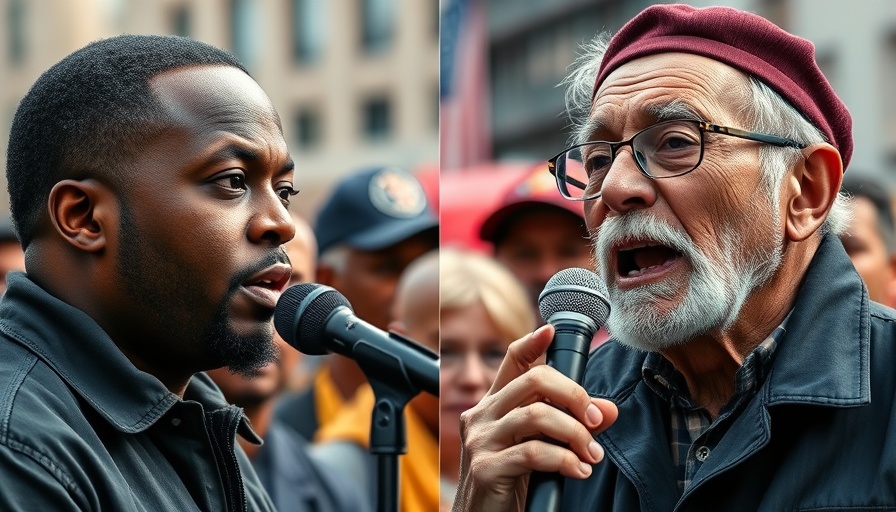
The Chicago Mayor's Stand Against Militarization of Local Law Enforcement
In an impassioned response to a growing call for military intervention in managing crime, Chicago Mayor Brandon Johnson asserts, "You don't solve crime by sending in the military." His remarks reflect a significant resistance against the militarization of police forces, a concept that resonates deeply given the current landscape of crime and public safety. The mayor's stance comes in the wake of recent national discussions about the efficacy of military-style tactics in local policing, raising questions about their impact on communities.
In 'You Don't Solve Crime By Sending In The Military': Chicago Mayor Slams Potential 'Occupation', the discussion dives into the complex dynamics of policing and community safety, prompting us to analyze the implications and future of law enforcement.
Understanding the Crime Rates in Chicago
As we examine the crime statistics in America today, it’s evident that urban areas like Chicago continue to grapple with rising crime rates, particularly in relation to gun violence and gang activity. According to the latest U.S. crime reports, despite efforts in community policing and social programs, the city's homicide rates have drawn a critical spotlight. This predicament underscores the need for innovative approaches rather than militarized tactics.
The Implications of Militarizing Police Forces
Military involvement in policing can lead to significant consequences. History teaches us that deploying military resources in civilian environments often escalates tensions rather than diminishes them. For instance, during the Ferguson protests in 2014, the use of military equipment on local police fostered an atmosphere of fear and conflict rather than cooperation. This historical context sheds light on why the mayor's refusal to endorse military interventions is not merely a political statement, but rather a protective measure for communities.
Community Safety vs. Militarization: The Ongoing Debate
This debate invites deeper scrutiny of how society balances community safety with civil liberties. Advocates for police reform emphasize community-focused strategies, prioritizing engagement over enforcement. These reform efforts have been at the forefront of national protests against police brutality and systemic racism. In Chicago, initiatives aimed at economic development and educational outreach are seen as viable alternatives to the harsh realities of a militarized approach.
Exploring Alternative Solutions for Crime Reduction
The Chicago mayor’s perspective reflects a desire to address root causes rather than symptoms. In the face of crime, cities are exploring various alternatives, including investing in mental health resources, job training programs, and community-building activities. For example, research has shown that communities with strong social services experience lower crime rates. By prioritizing such initiatives, cities can create safer environments that do not depend on military-style policing.
Future of Law Enforcement: Potential Trends and Predictions
Looking ahead, the trajectory of law enforcement in the U.S. hinges on public trust and community satisfaction. As leaders like Mayor Johnson advocate for reform, we may witness a shift towards a more community-based model of policing nationally. Policymakers might increasingly face pressure to produce effective crime reduction strategies that prioritize de-escalation, transparency, and community relations over militarization.
Conclusion: A Call to Rethink Our Approach
The challenges presented by urban crime necessitate thoughtful dialogue and innovative approaches. The mayor's critique of the military approach emphasizes the urgent need for lawmakers and community leaders to consider alternative methods that engage communities rather than alienate them. As discussions continue about the appropriate methods of crime prevention and community safety, citizens must engage in the conversation, pushing for policies that reflect the values of justice and equity.
In the context of public safety today, as we grapple with rising tension surrounding policing practices in America, it is imperative that we advocate for approaches that truly serve our communities.
 Add Element
Add Element  Add Row
Add Row 



Write A Comment